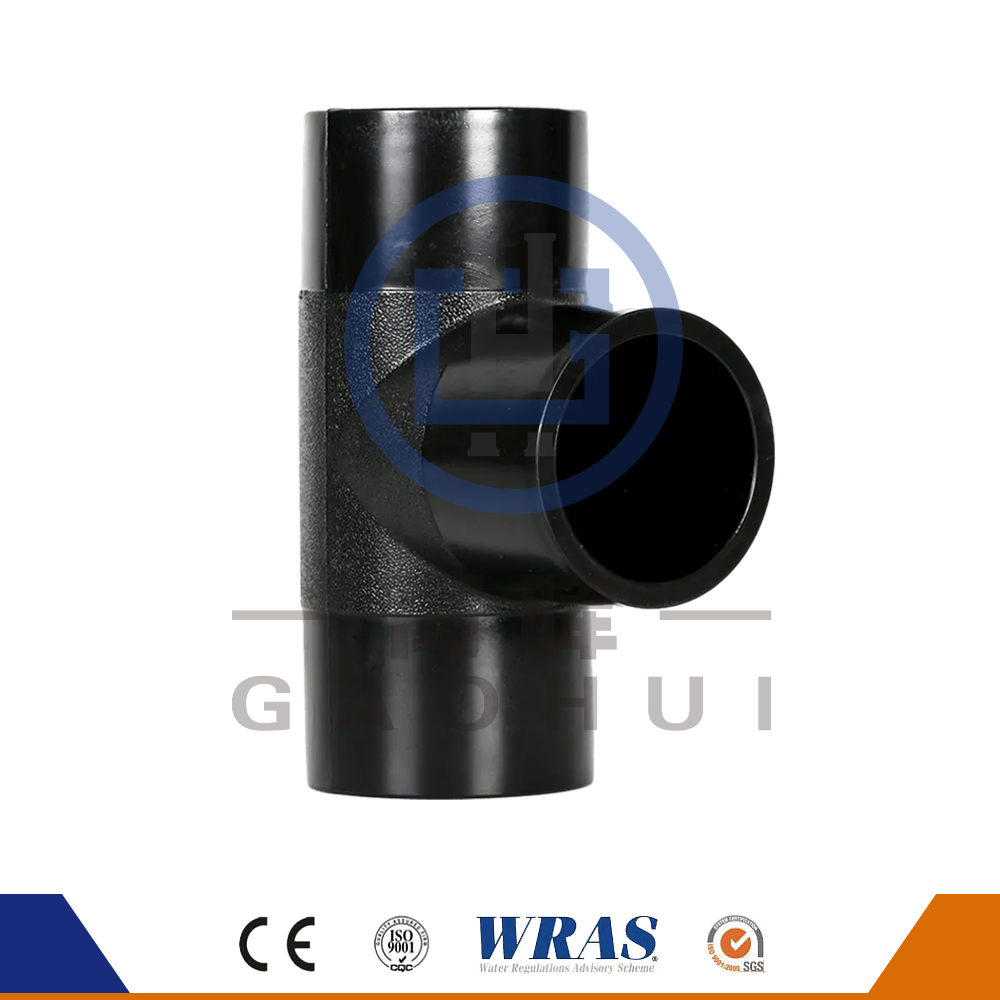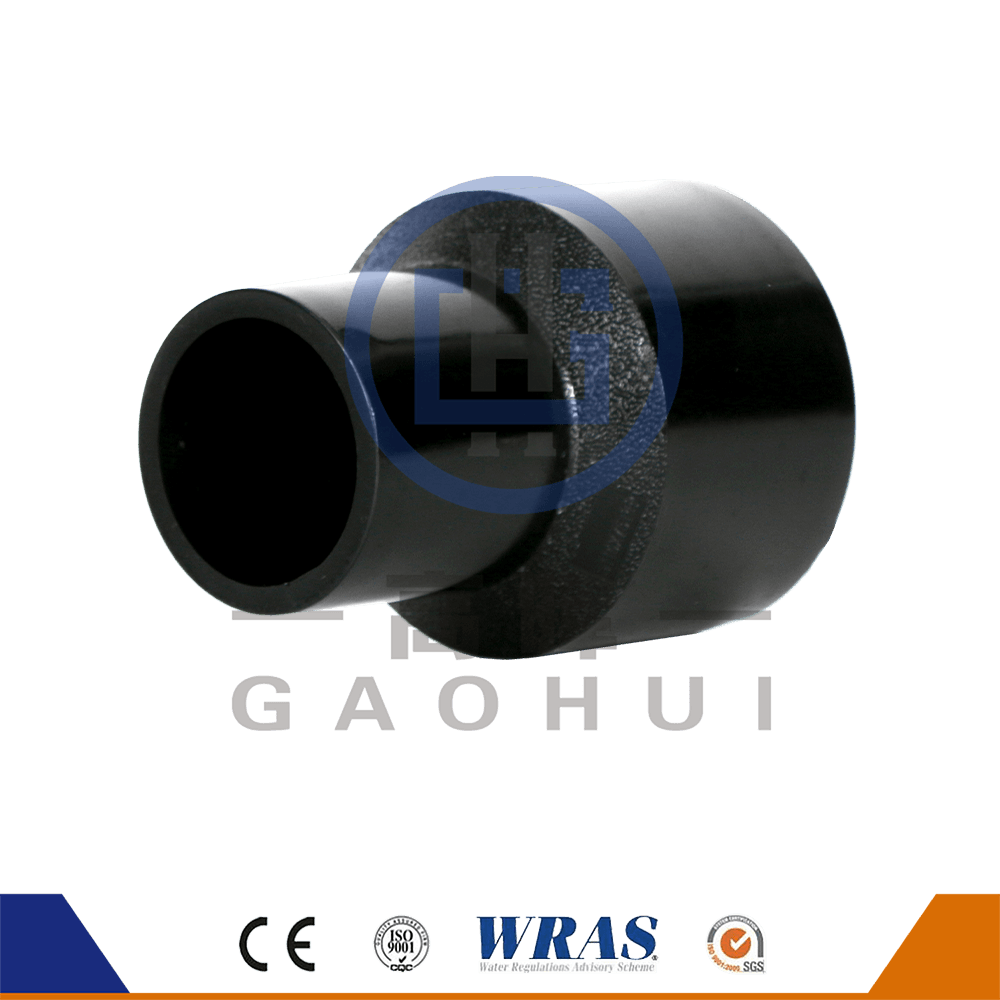Content
High-density polyethylene (HDPE) pipes and their fittings have been widely used in pipeline systems around the world due to their physical and chemical properties. With the continuous advancement of technology, the scope of use of HDPE Fitting in multiple industries has continued to expand, especially in agricultural irrigation, urban water supply, sewage treatment and other fields, and has become the preferred solution to replace traditional metal pipe fittings.
Basic characteristics and advantages of HDPE Fitting
As a pipe fitting made of high-density polyethylene material, HDPE Fitting is widely used in various pipeline connections and system construction. Its unique physical and chemical properties make it stand out in many fields.
1. Extremely strong corrosion resistance: One of the significant features of HDPE Fitting is its corrosion resistance. Compared with traditional metal pipes and fittings, HDPE pipe fittings are not easily corroded by chemicals such as acids, alkalis, and salts, and can be used for a long time in various chemical environments. For example, in sewage treatment plants, petrochemical industries and other fields, HDPE pipe fittings can effectively resist various chemical corrosion, avoid leakage and blockage caused by corrosion of metal pipes, and significantly improve the stability and safety of the system.
2. Anti-ultraviolet ability: HDPE material has anti-ultraviolet ability, which enables HDPE Fitting to maintain good physical properties even in an environment exposed to sunlight. This feature makes HDPE Fitting very suitable for outdoor applications, such as agricultural irrigation systems, urban water supply pipelines, etc. Whether it is high temperature, heavy rain or strong ultraviolet radiation, HDPE pipe fittings can maintain a long service life and reduce the loss caused by environmental factors.
3. High strength and durability: HDPE Fitting is not only impact-resistant, but also has high strength and toughness. It can withstand high working pressure and has outstanding high and low temperature resistance. During long-term use, HDPE pipe fittings will not age or break due to long-term water erosion, soil pressure and other factors. Therefore, whether in a deep underground pipeline system or in an industrial environment with high strength requirements, HDPE Fitting can maintain stable performance, greatly extending the service life of the pipeline system.
4. Convenient installation and maintenance: HDPE pipe fittings are easy to install, usually using hot-melt welding technology, forming a sealed whole when connected, avoiding the risk of water leakage caused by traditional threaded connections. Hot-melt connections are not only firm, but also ensure the durability of the pipeline system. In addition, HDPE pipe fittings have strong anti-pollution performance and are not easy to accumulate scale, so their maintenance costs are also low. For complex terrain or high-risk environments, the flexibility and durability of HDPE Fitting make it an ideal choice.
5. Environmental protection and sustainability: The high-density polyethylene material used in HDPE Fitting is not only non-toxic and harmless, but also recyclable and environmentally friendly. In the current context of global promotion of sustainable development, the green attributes of HDPE pipe fittings make it a pipeline system material that complies with environmental protection policies. It not only reduces the waste of water resources caused by pipeline leakage, but also helps reduce dependence on natural resources.
Application of HDPE Fitting in Agricultural Irrigation
With the development of modern agricultural technology, water-saving irrigation systems have been widely promoted worldwide. HDPE Fitting is widely used in agricultural irrigation due to its corrosion resistance, anti-aging, and UV resistance, especially in arid areas and areas with tight water resources.
1. Improve irrigation efficiency: HDPE Fitting can ensure smooth water flow and no leakage in the pipes, effectively reducing water waste. Through precise water flow control, it can greatly improve irrigation efficiency and reduce water consumption, especially in large-scale farmland irrigation.
2. Durability and anti-aging: Farmland irrigation pipes are often exposed to the sun. The anti-ultraviolet properties of HDPE pipes ensure that they can withstand long-term sun exposure and avoid aging and performance degradation caused by ultraviolet rays.
3. Adapt to complex environments: Agricultural irrigation systems often need to cross complex terrains, such as hills and mountains. The flexible installation method and high pressure resistance of HDPE pipes enable it to adapt to these complex environments and ensure the normal operation of the pipeline system.
Application of HDPE Fitting in Urban Water Supply
With the acceleration of urbanization, the demand for urban water supply is increasing. The application of HDPE Fitting in urban water supply systems can effectively ensure the efficient operation of water supply pipelines.
1. Ensure water quality safety: HDPE Fitting has the characteristics of not reacting with water quality, which can avoid water pollution caused by rust or corrosion of traditional metal pipes, and ensure that the water quality of the water supply system is always clean and safe.
2. High strength and durability: The high strength performance of HDPE Fitting enables it to withstand the pressure of underground soil and the impact of water flow in the pipeline. When natural disasters such as earthquakes and subsidence occur, the seismic and compressive properties of HDPE pipe fittings help the urban water supply system remain stable.
3. Energy saving and environmental protection: The smooth inner wall of HDPE pipe fittings reduces the resistance of water flow and effectively improves the efficiency of water flow. Lower flow resistance can not only reduce energy consumption, but also reduce the operating cost of the water supply system, especially in the water supply network of large cities, the energy saving effect is very obvious.
Application of HDPE Fitting in sewage treatment
With the increasingly stringent environmental protection regulations, the sewage treatment industry has higher and higher requirements for pipeline materials. HDPE Fitting has become an ideal choice in the field of sewage treatment due to its corrosion resistance, UV resistance and long life.
1. Corrosion resistance: Sewage usually contains a variety of corrosive substances. HDPE Fitting can be used for a long time in these harsh environments without being corroded, avoiding the rust and blockage of metal pipes.
2. Long life and low maintenance cost: Due to its corrosion resistance and anti-aging properties, the service life of HDPE pipe fittings in sewage treatment plants can usually reach more than 50 years, reducing the frequency of maintenance and replacement, and effectively reducing the operating cost of the system.


 English
English русский
русский عربى
عربى











